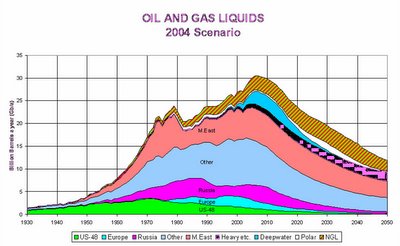 I am back from a very empowering weekend produced by Community Solutions and hosted by the Center for Sustainable Community at Stelle in Illinois.
I am back from a very empowering weekend produced by Community Solutions and hosted by the Center for Sustainable Community at Stelle in Illinois.I met up with three other peakers at O'Hare and we took the subway downtown to meet our ride. We carpooled down to Stelle in a Prius, which sat five adults more or less comfortably. I sat on the hump. We used the onboard GPS to find the hamlet, which lead to a nervous minute when we thought we were going the wrong way and had to turn around on narrow country roads with ditches on either side. But the GPS took us right to the front drive.
We were pretty late, but they had saved us dinner--hot soup and homemade bread. This was just the first in a series of delicious meals prepared with local, organic food; much from their own gardens. They showed us wonderful hospitality.
We stayed at various homes in the community and got to know our hosts a little bit that way. We were each given a binder full of resources to look through for the next day. When I saw the course outline and all of the handouts I felt intimidated--me? a community leader? I haven't even held my first showing of "The End Of Suburbia."
The first day started out with the usual course overview and introductions. Our group came from diverse backgrounds, but each of us had a burning desire to take action in our communities in common. It was quite a relief to be around other people who had the same concerns.
Then Pat gave some pointers on developing a peak oil talk. Each of us got a CD with his Powerpoint slides that we can use to develop our own talks. He pointed out the Fundamental Four graphs that tell the peak oil story:
 The first shows the peak of US production.
The first shows the peak of US production.The second is the growing gap between discovery and production, which I can't get to upload.
 The third is world oil production.
The third is world oil production.The fourth is the jump in OPEC oil reserves when they set the production quotas to be based on reserves, which I can't get to upload either.
Then we broke into groups to come up with answers to typical questions brought up in the Q&A session after a presentation. When everyone shared their responses, I was very impressed by the depth of knowledge in the room. And by what it will take to be able to field the FAQs effectively.
After lunch we did a session by Karen Berney on a theories for working with communities which included a section on a topic close to my heart, Adult Learning Theory and the Experiential Learning Cycle. Ultimately our goal is to bring about a change in people's knowledge, attitudes, and practices, so it is very important for us to understand how this happens. We also looked at the Diffusion of Innovation.
After dinner Pat Murphy gave us his standard presentation that we can use as a model for our own. We got into a challenging conversation about the use of Biblical quotes. This led to exploring the principle of the importance of knowing one's audience.
Day two gave us a chance to apply what we had learned the day before. We broke into small groups and imagined that we had to create a process for people that had just gotten information about peak oil. How could we help a group work through their responses to this very difficult information? We wanted to allow for ownership by the group of the problems that we are facing with the advent of peak oil. It is very important not to provide solutions--even if we could--but to allow them to arise out of the group.
In the afternoon we had the nerve-wracking chance to develop a 3-5 minute speech. I decided to do one introducing peak oil to beginners. I was very nervous. Very ironic considering that in a past life I have taught public speaking many times. My best line came when I was talking about what in the room is made out of oil. Your computer, pen, the paint on the wall, etc. I included the Xanax that I had taken before giving the speech. (Did you know that many medicines are made from petroleum feedstocks?)
Then we got to hear everyone's speeches. It was very interesting. We had a talented group who had many approaches.
Megan Quinn gave a presentation on communities that have developed action plans in response. It included the ones I have talked about here. The next day we developed our own action plans. What are we going to do to once we leave? And by when? We stood up and shared our commitments to all the world and handed in copies of them for Community Solutions to follow up with us on.
We were exhausted and glad to be done but it was hard to say good-bye to so many dedicated individuals. It means so much to know that we are not alone. If you are lucky you will be hearing from one of us in a neighborhood near you.
No comments:
Post a Comment